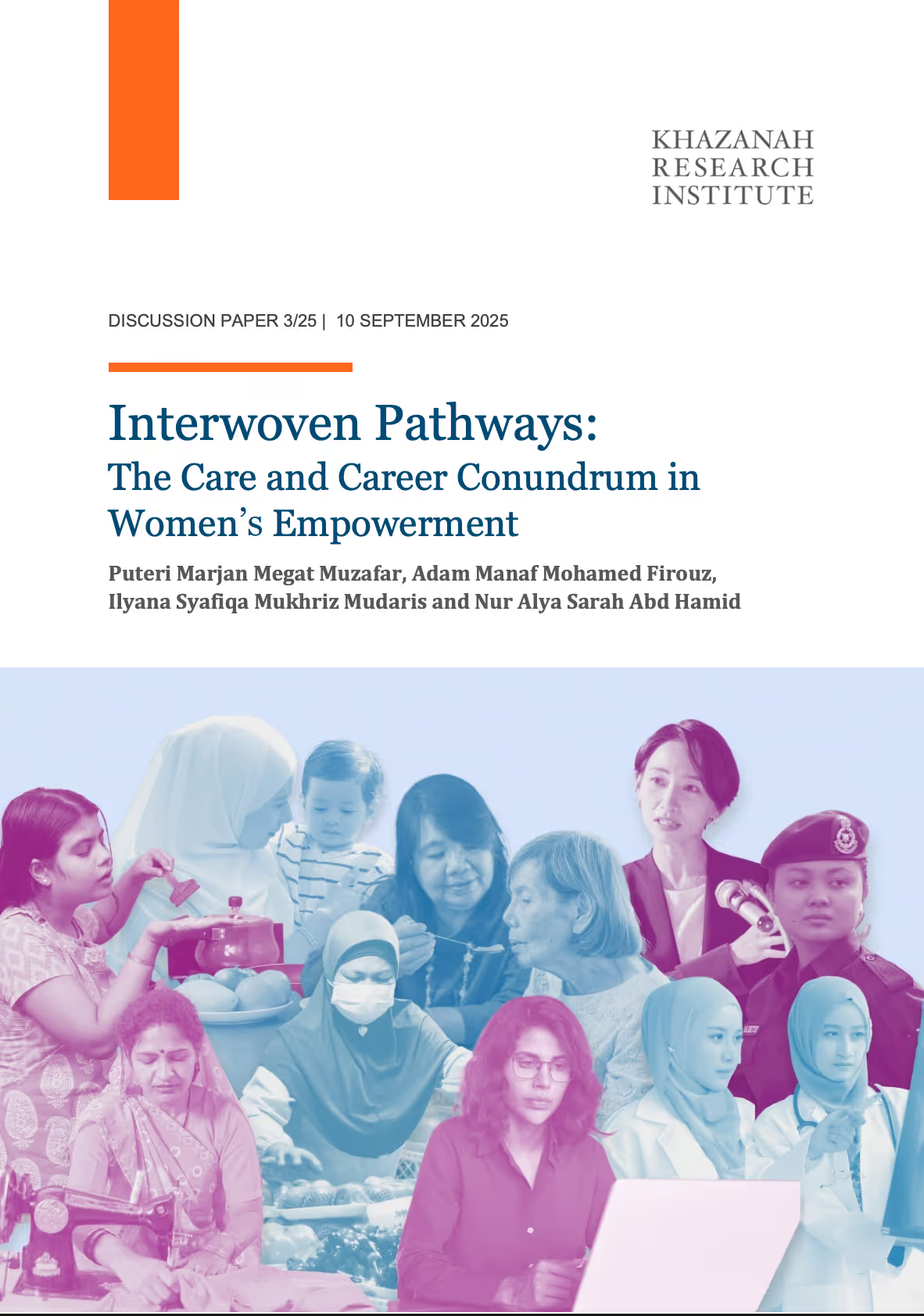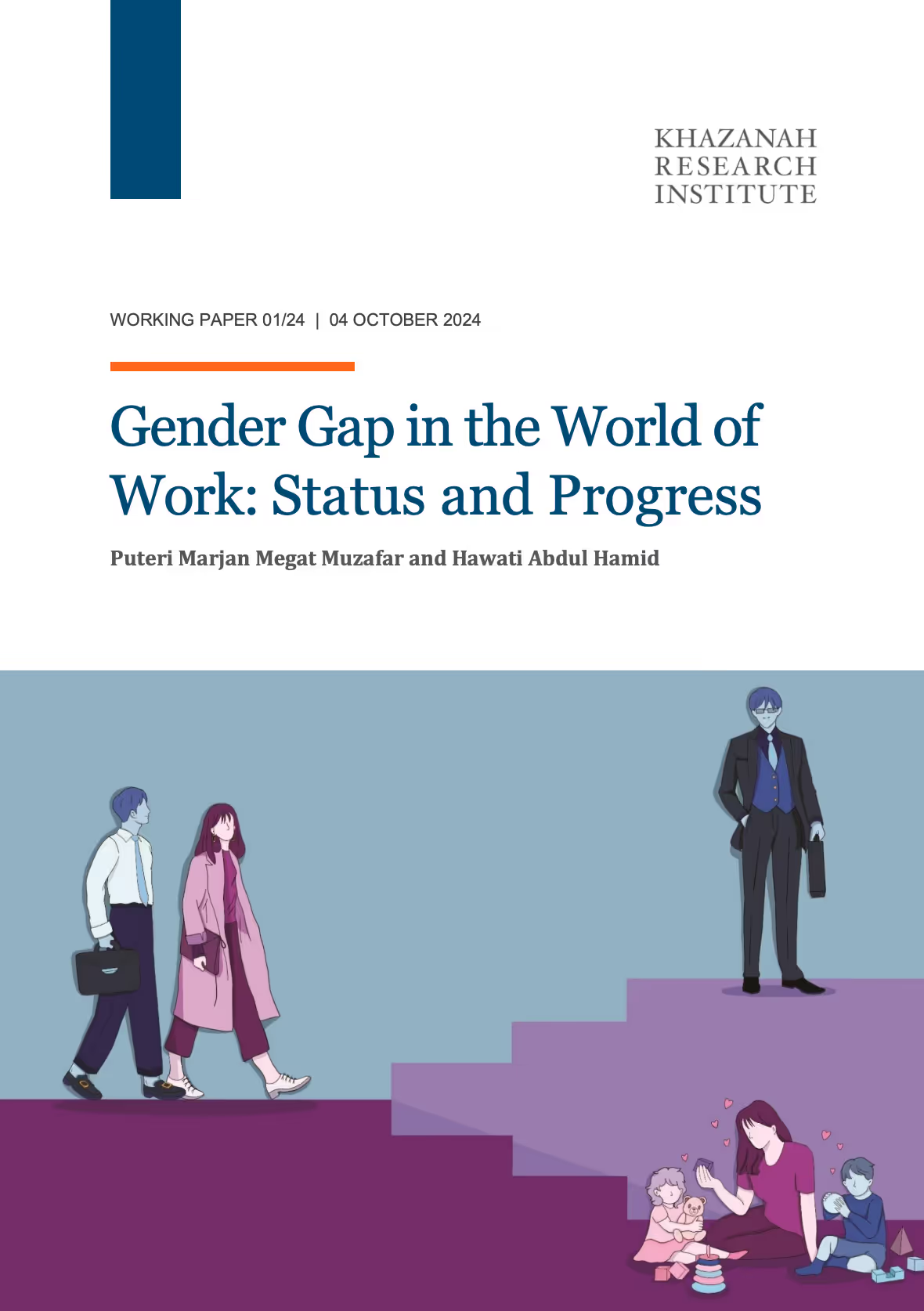
This discussion paper is part of KRI’s Gender and Care Work research series. It examinesthe often-overlooked experiences of women outside the labour force, particularly housewives who shoulder unpaid care and domestic responsibilities. Despite their vital contributions to household and societal wellbeing, their roles remain underrepresented in labour statistics and policy discourse.
The paper pursues two key objectives. First, it examines the circumstances, needs, and decision-making of women outside the labour force, drawing on primary data from survey, focus group discussions, and roundtables conducted in collaboration with Persatuan Suri Rumah Rahmah Malaysia (SRR), as well as findings from KRI’s Graduate Career Tracking Survey (GCTS). Second, it situates these insights within the broader policy landscape and prevailing narratives on women’s economic empowerment, supported by national labour force statistics, academic research, and policy documents.
By bringing together lived experiences, quantitative data, and policy analysis, the study seeks to uncover priority areas and gaps to inform more inclusive, gender-responsive policymaking in Malaysia.





















